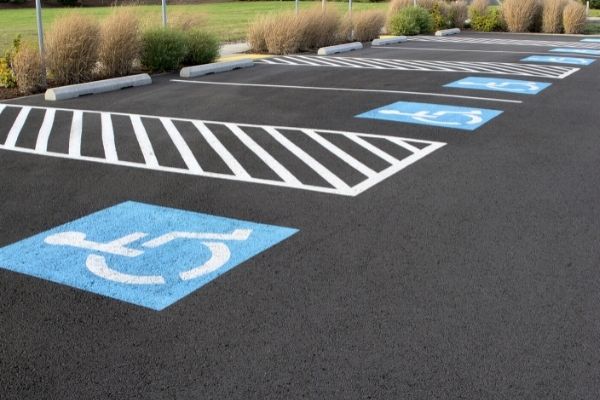

Finding the proper parking that works for society can challenge your everyday tasks, especially if someone lives with a handicap. Thankfully, handicap parking permits exist for this very reason and provides a registered parking spot only for those with underlying health restrictions.
If you live with a health restriction or a physical disorder, you can research the qualifications for receiving handicap parking and see if it’s right for you. Luckily, the umbrella for qualifying for a handicap parking permit is broad, so it isn’t a hindrance. Take a peek and see what works best to improve your daily routine and quality of life. It doesn’t do any harm to check and stay reassured in going about your day.
One of the most common qualifications for receiving handicap parking is underlying heart conditions. Whether it’s lifelong or a new chapter in your life, it’s one of the approved restrictions for a parking permit. Cardiac conditions range from high blood pressure, heart disease, stroke, and others. It all comes down to your quality of life and how you manage your life with it.
There are four classifications of heart disorders and diseases. In classes one and two, you might experience mild symptoms but still participate in physical activity. Whereas, within classes three and four, you are encouraged not to participate in physical activities. So, consult your doctor in relation to your heart health and what you can do moving forward.
When obtaining a handicapped parking permit, having very little range in motion or needing prosthetics to improve quality of life fall into that category. Depending on the severity, it shouldn’t be challenging to obtain a parking permit. Whether it’s a deformity, a limb amputation, spasms, or joint disorders, some states even allow hand disabilities to qualify. As for prosthetics, they give you the ability to remain mobile and active in your everyday life. In most states, you need a permit to use handicapped parking.
At the end of the day, if you are unsure of what your predisposition falls into, do your research before applying. Depending on where you live, it’s vital to know if your state or county allows for your disability is approved for handicap parking. For example, it’s good to know whether or not fibromyalgia qualifies for a handicap sticker. You never know what might or might not be eligible for handicap permits.
There are plenty of resources to look through, but the most straightforward ways are to speak to your doctor and the state to see what you can do. Most permits range between short-term or long-term periods, so see what works best for your everyday life. The permits either come as place cards to hang from your rear-view mirror, stickers, or license plates with handicap symbols.
Having a disability can hinder your daily activities and feeling a sense of normalcy. You must go to other lengths and stressors to do everyday things, and it can raise a lot of challenges. Thankfully, your community will always provide safety and comfort in your daily life, no matter where you live. So, enjoy that drive to the coffee shop; you deserve it.
Roofing is a crucial aspect of a building's structure as it protects the interior from…
When it comes to maintaining a home, one of the most important aspects to consider…
Galveston, Texas, is quickly emerging as a premier destination for deep-sea fishing enthusiasts in search…
In the ever-evolving landscape of construction and building maintenance, sustainability has emerged as a crucial…
Minnesota, celebrated for its picturesque rural landscapes and vibrant urban centers such as St. Paul…
In the realm of kitchen renovations, cabinetry plays a pivotal role in shaping both the…